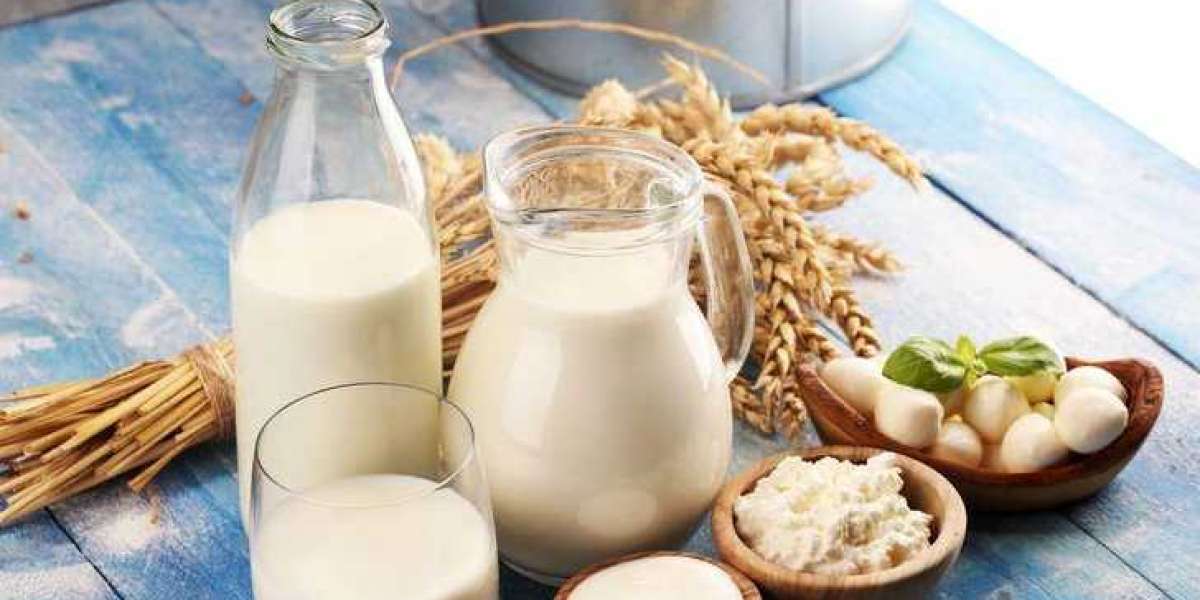In recent years, the demand for organic food has surged, with more consumers turning to organic products for their perceived health benefits. When it comes to dairy, the shift towards organic options has sparked conversations around sustainability, animal welfare, and the nutritional value of organic dairy products. But what exactly makes dairy and organic food such a great combination? Let's dive into the benefits of choosing organic dairy and explore why it’s worth incorporating into your diet.
What Is Organic Dairy?
Organic dairy products come from cows that are raised without the use of synthetic fertilizers, pesticides, or growth hormones. Organic farms follow strict regulations that focus on sustainable farming practices, including the use of organic feed, rotational grazing, and the protection of natural ecosystems. This results in a product that not only supports animal welfare but also contributes to the environment’s well-being.
The Benefits of Organic Dairy
Fewer Chemicals
One of the key reasons people choose organic dairy products is to avoid chemicals that are commonly used in conventional farming. Synthetic pesticides, herbicides, and fertilizers are restricted in organic farming, meaning the milk, cheese, and yogurt you consume are free from these potentially harmful substances.Better for the Environment
Organic farming methods focus on building healthy soils, reducing pollution, and promoting biodiversity. By choosing organic dairy, you’re supporting agricultural practices that aim to protect the land, water, and ecosystems for future generations. Organic farms use methods like crop rotation and composting, which help keep the environment clean and healthy.No Antibiotics or Synthetic Hormones
Organic dairy cows are not treated with synthetic growth hormones (such as rBGH) or antibiotics, which are common in conventional dairy farming. This means that organic milk and other dairy products are free from these chemicals, ensuring that you’re not consuming potentially harmful residues in your food.Nutritional Value
Some studies suggest that organic dairy products may contain higher levels of certain nutrients compared to conventional options. Organic milk, for example, may have a higher concentration of omega-3 fatty acids, antioxidants, and vitamin E, which are essential for overall health. These nutrients play a vital role in promoting heart health, reducing inflammation, and supporting immune function.Animal Welfare
Organic dairy farms are required to meet high animal welfare standards. Cows must be provided with access to pasture, fresh air, and ample space to roam. Additionally, organic farming practices prohibit the use of confinement methods, ensuring that the animals are treated with greater care and respect. As a result, many consumers choose organic dairy not only for its health benefits but also for its commitment to humane farming practices.
The Growing Demand for Organic Dairy
The popularity of organic dairy products has increased steadily in recent years, as more consumers recognize the benefits of organic farming and healthier food choices. According to industry reports, organic dairy sales have grown significantly, driven by a shift in consumer preferences for cleaner, more sustainable options. This trend is expected to continue, as people become more health-conscious and environmentally aware.
Moreover, as organic farming becomes more mainstream, the availability of organic dairy products has expanded. Consumers can now find organic milk, cheese, butter, and yogurt in most grocery stores, making it easier than ever to incorporate these products into their diets.
Incorporating Organic Dairy into Your Diet
Incorporating organic dairy into your diet doesn’t have to be complicated. Here are a few easy ways to enjoy the benefits of organic dairy:
- Start your day with organic yogurt or kefir: These probiotic-rich dairy products are great for gut health and can be topped with fresh fruit and organic granola for a nutritious breakfast.
- Choose organic milk for your coffee or smoothies: Organic milk can be used in various beverages, from lattes to protein shakes, providing you with a creamy, wholesome addition.
- Enjoy organic cheese as a snack: Organic cheeses are flavorful and versatile, perfect for a light snack or added to dishes like salads, pasta, or sandwiches.
- Opt for organic butter when cooking: Organic butter can be used in baking or sautéing to add richness and flavor to your meals.
Conclusion
Dairy and organic food Japan offer numerous benefits, from improved nutritional value and fewer chemicals to better animal welfare and environmental sustainability. By choosing organic dairy, you’re not only making a healthier choice for yourself but also supporting farming practices that are kinder to the planet. Whether you’re a long-time fan of organic food or new to the world of sustainable eating, integrating organic dairy into your diet is a simple yet effective way to live a more health-conscious lifestyle.








